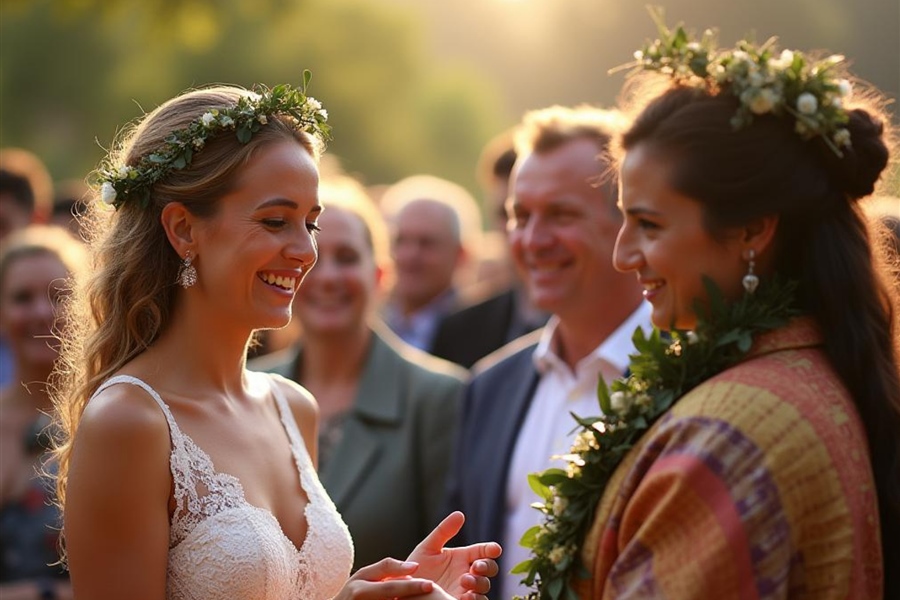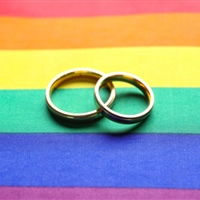
Planning your wedding is one of life’s most exciting journeys, but when your heritage includes rich cultural traditions, finding the right celebrant becomes even more meaningful. Whether you're honouring ancestral customs, blending two distinct cultures, or simply wanting your ceremony to reflect your family’s values, choosing a culturally sensitive celebrant is crucial for creating an authentic and respectful celebration.
Understanding Cultural Sensitivity in Wedding Ceremonies
Cultural sensitivity goes far beyond simply acknowledging different traditions—it’s about genuine respect, understanding, and the ability to weave your cultural elements seamlessly into your ceremony. A culturally sensitive celebrant recognises that your wedding isn’t just about two people joining together; it’s about honouring the generations who came before you and the traditions that have shaped your identity.
This sensitivity manifests in how they speak about your customs, their willingness to learn about unfamiliar traditions, and their ability to incorporate meaningful rituals without appropriation or superficial treatment. They understand that certain ceremonies hold deep spiritual significance and approach them with the reverence they deserve.
Researching Celebrants with Cultural Experience
Begin your search by looking for celebrants who explicitly mention cultural ceremonies in their portfolios or websites. Many experienced celebrants will showcase multicultural weddings they've conducted, demonstrating their comfort and expertise with diverse traditions.
Don’t limit yourself to celebrants from your own cultural background, though they can certainly be wonderful choices. Sometimes, a celebrant from a different heritage who shows genuine interest and respect for your traditions can bring a fresh perspective whilst maintaining the authenticity you desire.
Check their testimonials and reviews, paying particular attention to feedback from couples with similar cultural backgrounds to yours. Look for mentions of how well the celebrant understood and incorporated specific traditions, and whether families felt their customs were honoured appropriately.
Essential Questions to Ask Potential Celebrants
When interviewing potential celebrants, ask specific questions about their experience with your cultural traditions. Inquire about other ceremonies they've conducted that included similar elements, and request references from those couples if possible.
Ask how they approach learning about unfamiliar customs. A quality celebrant will express enthusiasm about researching your traditions and may even suggest meeting with elder family members to gain deeper understanding. They should demonstrate respect for the learning process rather than assuming they already know everything.
Discuss their flexibility regarding ceremony structure. Some cultural traditions require specific timing, particular arrangements of family members, or certain ritual objects. Your celebrant should be willing to adapt their usual format to accommodate these requirements rather than asking you to compromise on meaningful elements.
Red Flags to Avoid
Be wary of celebrants who seem dismissive of your traditions or suggest that certain elements might be "too complicated" for guests to understand. Your wedding ceremony should never require you to water down your heritage for the comfort of others.
Avoid celebrants who make assumptions about your culture based on stereotypes or who seem to view cultural elements as exotic additions rather than integral parts of your identity. Similarly, be cautious of those who claim to be experts in your traditions without being able to demonstrate specific knowledge or experience.
Watch out for celebrants who seem unwilling to invest time in learning about your customs or who suggest generic "multicultural" elements that don’t actually reflect your specific heritage. Cookie-cutter approaches to cultural ceremonies often result in meaningful traditions being reduced to superficial gestures.
Collaborating on Ceremony Design
Once you've found a promising celebrant, the collaboration phase becomes crucial. Share the stories behind your traditions—explain not just what you want to include, but why these elements matter to your family. This context helps your celebrant understand the emotional weight of each ritual and present them with appropriate gravity.
Provide resources such as books, articles, or family documents that explain your customs. If possible, arrange for your celebrant to speak with knowledgeable family members who can offer insights into proper protocols and the spiritual significance of various elements.
Work together to create a ceremony timeline that respects the natural flow of your cultural traditions whilst remaining engaging for all guests. Your celebrant should be able to provide brief, respectful explanations of rituals for guests who might be unfamiliar with them, without over-explaining or treating your traditions as educational exhibits.
Incorporating Multiple Cultural Traditions
If you and your partner come from different cultural backgrounds, finding a celebrant who can honour both traditions requires extra care. Look for someone who understands that this isn’t about creating a "fusion" ceremony, but about respectfully including meaningful elements from both heritages.
Discuss how to balance different traditions without one overshadowing the other. Some couples choose to alternate between cultural elements throughout the ceremony, whilst others prefer to dedicate specific portions to each heritage. Your celebrant should help you find a structure that feels authentic to your relationship whilst honouring both families.
Be prepared to educate your celebrant about how your different traditions might complement or contrast with each other. They should be able to help you navigate any potential conflicts whilst maintaining the integrity of both cultural approaches.
Budget Considerations and Value
Culturally sensitive celebrants may charge premium rates, particularly if they need to invest significant time in research or travel to meet with cultural advisors. However, consider this an investment in ensuring your most important day reflects your true identity.
Factor in potential additional costs such as special ceremonial items, extended consultation time, or rehearsals that might be longer due to cultural protocols. Some celebrants may also charge for travel if they need to visit cultural centres or meet with community elders as part of their preparation.
Remember that the cheapest option is rarely the best when cultural sensitivity is paramount. The value of having your traditions honoured properly and your family feeling respected is immeasurable and worth the additional investment.
Building Trust and Communication
Establishing open communication with your chosen celebrant is essential for success. Set up regular check-ins during your planning process to discuss any concerns or new ideas that arise. Cultural elements often evolve as you involve more family members in planning, so maintaining flexibility is key.
Be honest about your expectations and concerns. If something doesn’t feel right during the planning process, speak up immediately rather than hoping it will work itself out. Your celebrant should be responsive to your feedback and willing to make adjustments to ensure you feel completely comfortable.
Consider having your celebrant meet key family members who might be participating in cultural rituals. This helps build trust within your family and ensures everyone feels confident that your traditions will be handled respectfully.
Conclusion
Finding a culturally sensitive celebrant requires time, research, and careful consideration, but the result is a wedding ceremony that truly represents who you are and where you come from. Your perfect celebrant will be someone who approaches your traditions with genuine curiosity and respect, takes time to understand the deeper meanings behind your customs, and works collaboratively with you to create a ceremony that honours your heritage whilst celebrating your future together.
Remember that your wedding day is about celebrating your love story, which inevitably includes the cultural threads that have woven together to create who you are today. The right celebrant will help ensure that every element of your ceremony feels authentic, meaningful, and beautifully representative of your journey together.
Find the right Celebrant for you right HERE💍


